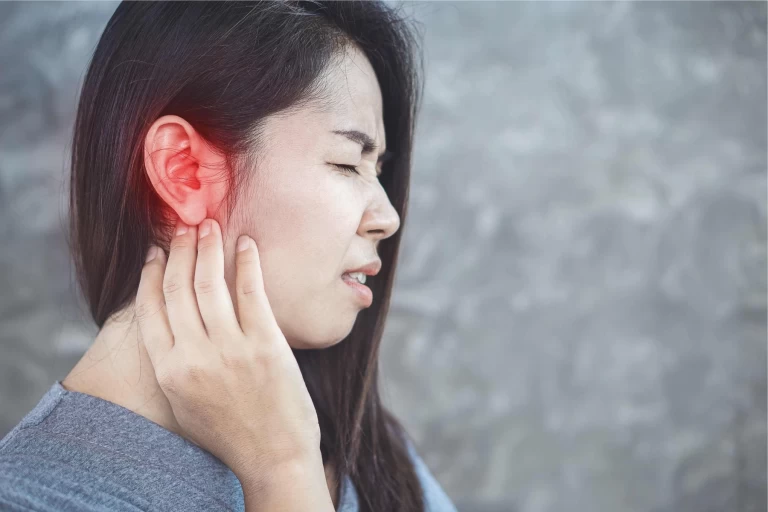
Headaches are one of the most common health problems. Tension headaches, which are the most common type of headache, affect 80 percent of adults from time to time. Tension headaches feel like a band squeezing the head, creating pain on the forehead.
Occipital neuralgia, however, is much different from the tension-type headache we are used to hearing about and is extremely rare – affecting 3.2 people out of every 100,000 a year according to the American Migraine Foundation.
What is Occipital Neuralgia Syndrome?
Occipital neuralgia affects the area surrounding the occipital bone. The occipital bone forms the back and the base of the skull where the spinal cord passes and consists of four parts: The basilar part, two lateral parts, and the squamous part.
The hole located at the base of the skull that is surrounded by these four occipital bone parts is called the foramen magnum, and it allows your central nervous system to connect from the brain to the spinal cord.
Your two occipital nerves run on each side of the head and create most of the feeling in the back and top of your head. These two nerves come up from the bones between your spine and upper neck, going through the muscles located at the back of your head and to your scalp.
Occipital neuralgia syndrome is when your occipital nerves become injured or inflamed. When your occipital nerves are harmed, it can cause a lot of pain in the back of the head and neck where your occipital bone forms and where the top of the spine is located.
Why Occipital Neuralgia Occurs
Pain associated with occipital neuralgia can be quite painful and sudden. While other headaches may have general triggers that cause them, occipital neuralgia will only begin when occipital nerves are either injured or irritated. Your occipital nerves are in the second and third vertebrae of the neck.
Some of the causes of occipital neuralgia include the following:
- Pinched Nerve Root in the Neck - A pinched nerve may occur when there is too much pressure on the nerve from its surrounding tissues such as bones, cartilage, muscles, or tendons. When a pinched nerve occurs in the root of the neck, it can cause great pain to the occipital nerves and the area around them.
- Injury to the Scalp or Skull - Concussive or cervical trauma can cause damage to the occipital nerves. Injury to the scalp or skull could be either closed (meaning does not break the skin) or penetrating (where skin or bone of the skull is broken).
- Surgery to the Scalp or Skull - Surgery to the scalp or skull may cause trauma to the occipital nerves.
- Tight Muscles at the Back of the Head - If your muscles at the back of your head become tight, they could irritate your nerves and cause occipital neuralgia as tight muscles can apply pressure on your occipital nerves.
The following conditions may lead or contribute to the causes of occipital neuralgia:
- Blood Vessel Inflammation
- Gout
- Tumors that Affect the Nerve Roots
- Osteoarthritis
- Infection
Occipital Neuralgia Symptoms
Symptoms of occipital neuralgia can be mistaken for migraine and although symptoms of occipital neuralgia can be quite startling, they do not normally associate with being a life-threatening condition. Since occipital neuralgia develops from the occipital nerves on each side of the head, and the occipital nerves run from the spine to the scalp, sensitivity can occur in any place along this path.
Pain from occipital neuralgia has been described as piercing, sharp, stabbing, and intense – similar to the pain described in a migraine. Occipital neuralgia does not necessarily have watery eyes or redness as a symptom and feels closer to a stabbing pain rather a dull throbbing pain.
While the intense pain may last briefly, the tenderness around the nerves could linger for quite some time. These episodes of pain could be triggered by a soft touch or happen spontaneously.
The main symptoms of occipital neuralgia are the following:
- Outburst of pain from turning the head to the side
- Pain on one or both sides of the head (where your occipital nerves are located)
- Tender scalp
- Sudden pain from putting the head down on a pillow
- Sensitivity to light
- Abrupt pain from brushing or washing the hair
- Aching, burning, and throbbing pain that begins at the base of the head and goes to the scalp
Can a Neck Adjustment Help Occipital Neuralgia?
If the spine near the neck is misaligned, this could cause injury or irritation to your occipital nerves. Because of the occipital nerves being in your second and third vertebrae, any misalignment to the neck can easily affect them.
A misalignment applies pressure to the nerves within that area which can cause great pain and disrupt the brain to body communication. When your brain to body communication has interference, the body will have trouble healing itself. This interference can bring about more than just pain to your body, it can put it as risk of developing the disease as well.
When vertebrae in the neck are corrected, the nerves will no longer have pressure applied to them and therefore relieve the pain caused by the irritated nerves. If the nerves are damaged, correcting the misalignment will allow the brain to body communication to return to functioning properly and enable the body to receive the right brain signals to heal the affected area.
Can Chiropractic Offer Occipital Neuralgia Treatment?
Chiropractors specialize in understanding how the central nervous system is connected to the spine and how misalignments within the spine can bring about issues to the entire body. If you are experiencing pain, there is a reason your body is giving you those signals and they should not be ignored.
Medication and surgery usually rely on hiding the pain rather than fixing the cause of it. A chiropractor can look at your spine and see what nerves are being compressed and damaged by your misalignments.
Our spine is the core of our body and our spine indicates how well our body can perform. A misaligned spine can turn anyone’s body into an unhealthy one – sometimes quickly and other times gradually over time if left misaligned.
Occipital neuralgia comes from irritation and damage to the occipital nerves that are compressed by the top of the spine. If someone injures their head, scalp, or neck, the vertebrae can shift and press up against the occipital nerves. Chiropractors can help you find relief for occipital neuralgia by making sure your spine is no longer injuring the nerves causing it.
What is the Best Chiropractic Technique for Occipital Neuralgia?
The best chiropractic technique for occipital neuralgia is Upper Cervical. Upper Cervical focuses on the top of your spine, where the occipital nerves are located. To get the best results, a chiropractor who specializes in this specific area is recommended.
Chiropractic Occipital Neuralgia Specialist Near Me
We specialize in Upper Cervical Chiropractic and can help your body heal the nerves your spine has been compressing.
No matter how long you may have had occipital neuralgia, everyone has a chance at improving their condition with the Upper Cervical because of its unique focus to adjust the very vertebrae that house the brain stem. As soon as pressure is released from the brain stem, the body begins to heal itself and transmit proper signals back and forth from the brain to the body.
The rest of the spine also follows the top vertebrae and will begin to do its best at correcting itself after the misalignment at the top is corrected. So not only is Upper Cervical a great treatment for occipital neuralgia, but it takes tension off your brain stem and realigns the rest of your spine as well.







Leave a comment